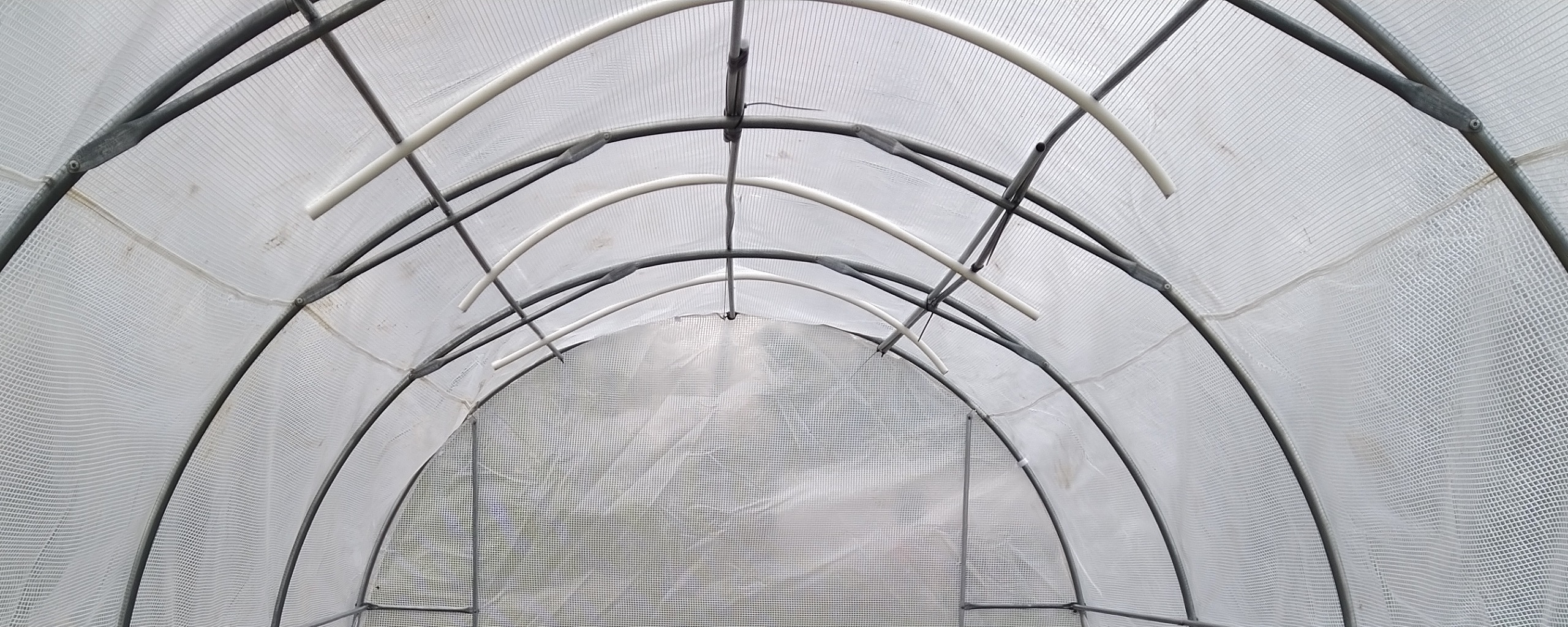The biggest problem I’ve seen with the cheap metal frame / plastic covering high tunnel greenhouses is that water will pool up on the top, and the weight of the water will collapse the whole thing.
I’ve seen a few different approaches to preventing the plastic from forming a dish and holding gallons of water. We opted for a simpler route that has, thus far, proven effective. We bought three EMT tubes — metal tubes — to create a firmer ridge-line in the greenhouse. I had 1/2″ CPVC tubing from the low tunnel greenhouse. From being held in an arch over several seasons, it was permanently bent. We cut those tubes in half, and placed them above the ridge line tubes. The ends were then pulled under the next set of horizontal bars of the greenhouse frame. This holds them in place firmly. They prevent water from pooling — the last section of the greenhouse still does pool, so I will eventually add something else in that section. It is, however, a small enough weight that the greenhouse frame can support it.
